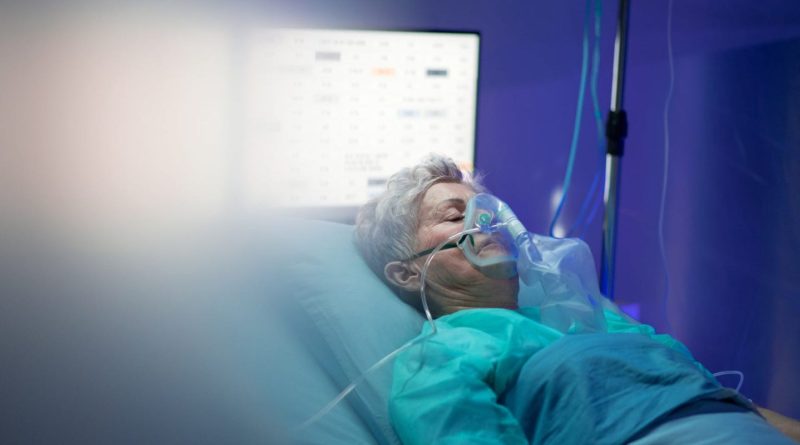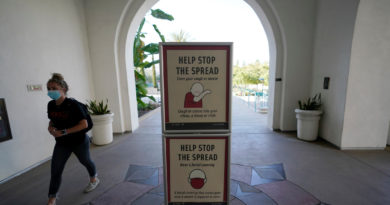How to treat COVID-19: Tocilizumab, other drugs tested
The U.S. is currently facing a shortage of ventilators. Here’s how they work and why they are so important in fighting COVID-19.
USA TODAY
When Dr. Carl June first heard about symptoms in seriously ill COVID-19 patients, his thoughts jumped to Emily Whitehead. Emily, 7, had endured the same kind of immune system overreaction when June treated her in 2012 with an experimental therapy against her leukemia.
Her immune system went into life-threatening overdrive, just like many of those with COVID-19.
In a last-ditch effort to save Emily’s life, he had given her a drug, tocilizumab, that kept his own daughter’s rheumatoid arthritis under control. To everyone’s surprise, the drug worked. Emily is now a normal teenager.
Tocilizumab is one of hundreds of therapies being tested against COVID-19.
Four months ago when COVID-19 arrived in the USA, there were no therapies shown to treat it. Doctors relied solely on what’s called supportive care, including intravenous fluids, fever reducers and ventilators, the bulky machines that allow people to breathe when they can’t do it on their own.
There are two approved therapies shown to make a difference in COVID-19, and 150 treatments and more than 50 antivirals are being tested in people.
A treatment that kept people from falling seriously ill – or even needing hospitalization – could strip the fear from the coronavirus and allow people to resume their pre-COVID-19 lives.
“Once somebody develops a treatment for the virus, everything will go away,” said Daniel Batlle, a kidney expert from Northwestern Medicine and professor of medicine at Northwestern University in Chicago.
Even after a vaccine is developed, treatments that save lives and prevent hospitalization will be crucial. Vaccines might not work for everyone, and doses may initially be limited.
Treatments under development
The majority of people diagnosed with COVID-19 – more than 80% – will recover without the need for hospitalization or significant treatment.
For those who do require care, treatments have evolved as researchers learn more about the coronavirus and the infection it causes, as well as the damage it can do to various parts of the body.
Potential therapies being tested, experts said, fall into four major categories that are best used at different times:
- Antivirals that slow or block the virus’s expansion in the body will be most effective early in infection, before the virus is fully established.
- Convalescent plasma and antibodies that provide immune weapons to attack the virus once it’s established could help control infections and avoid the need for hospitalization.
- Immune system modulators, most that tamp down an overreacting immune system, will be particularly useful later in the course of disease, when the immune response rather than the virus drives the patient’s condition.
- Anti-coagulants that stop or slow blood clots that can cause organ damage or stroke are likely to be most useful in patients having a serious reaction to the virus.
Even as these different approaches are tested, many unanswered questions and challenges remain. One is how to treat patients who might have different responses to the virus, said Dr. John Wherry, director of the institute for immunology at the Perlman School of Medicine at the University of Pennsylvania.
At Penn, he and his colleagues have seen three types of patients: a large group whose immune system is overreacting, a small group whose immune system is underreacting, and others whose immune system is more balanced in the response.
Drugs are tested on all patients without making any distinction, Wherry said. That means ones that tamp down the immune system might help patients with an overactive immune system but hurt those whose immune systems aren’t working hard enough, and do nothing for those with a balanced immune response.
Drugs that might be useful for patients with too little immune response might be seen as ineffective because they don’t help the larger number of people with immune overreactions, he said.
Wherry said researchers are getting closer to identifying which patients are likely to do better with which kind of therapy. “We still need to be pushing very hard and thinking very creatively about how to match treatments to the right patient,” he said.
Doctors learn other approaches simply by treating patients.
Batlle, the kidney expert, said that although COVID-19 has been considered a lung disease, as many as half of patients hospitalized with severe cases also suffer acute kidney injury. It’s not clear how many patients will be left with long-term kidney problems after recovering from severe cases of COVID-19.
“We don’t want to scare anybody, but kidney damage was initially underreported, and now several studies have shown that it is extremely frequent in hospitalized patients,” he said.
Treatment for acute kidney injury usually involves dialysis, which removes toxins from the blood that the kidneys can no longer address. Batlle hopes treatments that address COVID-19-related inflammation and formation of blood clots will eventually reduce such injuries.
“We should be better prepared to help these patients and not rely (only) on supportive care,” he said.
As coronavirus cases in some states start to rise again, make sure to remember these safety tips.
USA TODAY
Just two drugs recommended
Since mid-May, dexamethasone and remdesivir have been shown useful for certain COVID-19 patients. Both are recommended by the National Institutes of Health and the Infectious Disease Society of America.
For hospitalized patients, these drugs “are beginning to show an effect,” said Dr. Rajesh Gandhi, an infectious disease specialist at Massachusetts General Hospital who sits on both panels.
Placing patients on their stomachs rather than their back when they have breathing problems may help, according to some experts.
Gandhi and other doctors said they are much more comfortable treating COVID-19’s many symptoms, which can include blood clots, immune problems and organ failure, in addition to lung issues.
Get daily coronavirus updates in your inbox:Sign up for our newsletter
Some said COVID-19 is a multi-system disease, targeting at times the lining of blood vessels. This would explain how it damages so many of the body’s organs, all of which are fed by blood vessels.
A study by the Recovery Collaborative Group, still not fully vetted, showed that dexamethasone, at a dose of 6 mg per day for up to 10 days, can be lifesaving for patients with COVID-19 who are on ventilators. The evidence was weaker for patients who are hospitalized and receiving oxygen. The study found no support for giving the steroid to less seriously ill COVID-19 patients, but more research is underway.
According to a study in May in the New England Journal of Medicine, the drug remdesivir, developed to treat Ebola, shortened the recovery time of patients hospitalized with COVID-19 and lower respiratory tract infections.
Scientists said remdesivir might be even more effective in people who are not sick enough to require hospitalization, but because it can be delivered only intravenously, it has not been tested on outpatients. Its manufacturer, Gilead, is rushing to ramp up production and to develop an inhaled version of the drug.
Although remdesivir is helpful, it doesn’t cure COVID-19 and is far from a home run, said Dr. Mark Rupp, an infectious disease expert at the University of Nebraska.
“It’s kind of like getting on base with a single,” he said. “We’ve got a long way to go.”
As hydroxychloroquine shows, research is key
Although it’s tempting to throw everything in the medicine cabinet at COVID-19, Rupp said he learned while fighting Ebola in 2014-2015 that it’s much more important to conduct high-quality clinical research during an outbreak.
Without such research, “you throw the kitchen sink at everybody, and you don’t know what helps and what hurts – and that’s a dangerous place to be,” he said.
He cited the example of hydroxychloroquine, which was used early on to treat COVID-19 before research showed it was ineffective in very sick patients.
“Everybody wants to do good, we want to help our patients,” Rupp said. “But sometimes well-meaning efforts really don’t result in beneficial effects.”
It’s only by testing drugs and other therapies through clinical trials that doctors learn what works and what doesn’t, he said. “The more data and information we can gather, the better off we’re going to be.”
Health and patient safety coverage at USA TODAY is made possible in part by a grant from the Masimo Foundation for Ethics, Innovation and Competition in Healthcare. The Masimo Foundation does not provide editorial input.
Read or Share this story: https://www.usatoday.com/story/news/health/2020/07/09/how-treat-covid-19-tocilizumab-other-drugs-being-tested/5383726002/




